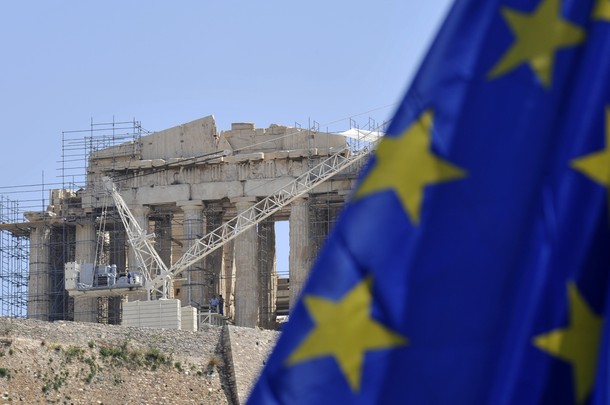A few weeks ago there was a wild rumor that Greece’s debt crisis had been dealt with. The hope was that with enough debt relief and a “managed” default, Europe had bought time for global growth to lift the Greek economy, and Greek politicians would wring the country through massive austerity. This was a misread of the strength of global economic recovery, Greek voters, and financial markets.
Greek voters made it clear they don’t see the benefits of austerity, and believe Germany and the rest of Europe is punishing them for their government’s mistakes. The French and Dutch, and even parts of Germany, seem to feel the same way and have thrown out their governments. Interest rates on debt have spiked and markets have tanked. This has sparked renewed hope that Greece’s exit can stanch the bleeding.
- Greece’s economy has structural problems that will kill growth absent a flexible currency.
- Toughness from the European Union, International Monetary Fund, and European Central Bank will force reforms and leniency, allowing Greek politicians to dither.
- Contagion effects for the rest of Europe have changed, so a Greek exit will no longer force Spain and Italy into the same position.
This is another misread. If Greece leaves the euro the costs of using its own currency will push the country into chaos. Banks will fail, businesses will face massive euro-denominated debts they’ll have to pay with a nearly worthless drachma, and the costs of basic necessities will skyrocket. Far from solving the problem, Europe will have a failed state on its hands. Markets will know this, and will immediately turn on the other weak economies. The failure of Europe will be close behind.
The road back to growth in Europe, as in the United States, will be long, difficult, and largely unglamorous. But shedding Greece and hoping no one understands the true implications is just more wishful thinking.
Alexei Monsarrat is the director of the Atlantic Council Global Business & Economics Program. This piece originally appeared on the U.S. News Debate Club. Photo credit: Getty Images.
Image: euacropolis.jpg
